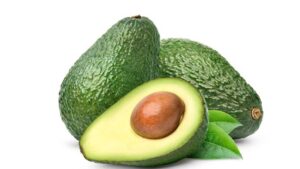At its core, an egg is a reproductive cell laid by female birds, notably chickens, encased within a protective shell. However, in the culinary realm, eggs are celebrated for their diverse uses as a versatile ingredient that serves as a binding agent, leavening agent, emulsifier, or star in its right, both in sweet and savory dishes.

Culinary Significance:
The culinary significance of eggs extends far beyond their basic form, resonating as a fundamental ingredient in diverse cuisines worldwide. Here’s an exploration of their culinary importance:
Binding and Emulsifying Properties:
Structural Foundation:
- Key Binding Agent: Eggs act as a binding agent in recipes, holding ingredients together in dishes like meatballs, meatloaf, or veggie patties, providing structure and cohesion.
Emulsification Wizardry:
- Emulsifying Agent: The yolk’s lecithin content aids in emulsifying ingredients, forming stable mixtures like mayonnaise, salad dressings, or hollandaise sauce.
Leavening and Texture Enhancement:
Baking Marvel:
- Leavening Agent: Eggs contribute to rising and lightening textures in baked goods like cakes, muffins, and soufflés due to their ability to trap air when whipped.
Moisture Retention:
- Texture Modifier: Eggs’ moisture-retaining properties lend a moist and tender texture to baked goods, enhancing their overall quality.
Versatility in Culinary Applications:
Breakfast Staples:
- Versatile Breakfast: Eggs star in classic breakfast items like omelets, scrambled eggs, frittatas, and quiches, offering endless flavor variations.
Global Cuisine Integration:
- Culinary Diversity: They feature prominently in international cuisines, from Italian pasta carbonara to Chinese egg foo young, adapting to diverse culinary traditions.
Culinary Innovation and Creativity:
Creativity Catalyst:
- Experimental Ingredient: Eggs encourage culinary experimentation, leading to innovative recipes, such as egg-based custards, soufflés, and meringues.
Fusion and Modern Trends:
- Adaptability: They seamlessly blend into contemporary culinary trends, appearing in trendy dishes like cloud eggs, avocado toast, or as a protein-rich addition to grain bowls.
Nutritional Powerhouse:
Protein-Rich Source:
- High-Quality Protein: Eggs are renowned for their complete protein profile, containing essential amino acids vital for muscle repair, making them a staple in fitness diets.
Nutrient-Dense Offering:
- Rich Nutritional Profile: Eggs boast vitamins (A, D, B12), minerals (iron, zinc), and antioxidants like lutein, supporting various bodily functions and overall health.
Cultural and Traditional Significance:
Symbol of Celebration:
- Festive Inclusion: Eggs symbolize new beginnings, fertility, and renewal, featuring prominently in holiday traditions like Easter eggs or Chinese Mooncakes.
Culinary Heritage:
- Historical Roots: Embedded in cultural cuisines worldwide, eggs hold a historic significance, passed down through generations in traditional recipes.
Eggs’ culinary significance is multifaceted, serving as a cornerstone ingredient that contributes to structure, flavor, and texture in dishes while evolving to meet modern dietary preferences and culinary trends, thus maintaining their pivotal role in global gastronomy.
Health Advocacy
Health advocacy surrounding eggs has evolved due to scientific research, which has reshaped perspectives on their nutritional impact:
Nutritional Reevaluation:
Cholesterol Debate:
- Shifting Perceptions: Previous concerns about dietary cholesterol in eggs have been reconsidered due to updated research findings.
Healthy Balance:
- Understanding Impact: Current studies suggest that dietary cholesterol in eggs may not significantly affect blood cholesterol levels in most individuals.
Nutrient-Rich Profile:
Protein Prowess:
- High-Quality Protein: Eggs are recognized as an excellent source of high-quality protein containing essential amino acids vital for bodily functions.
Micronutrient Richness:
- Essential Vitamins: Eggs contain vitamins A, D, B12, essential for vision, bone health, and metabolism, enhancing their nutritional value.
Supporting Health Goals:
Weight Management:
- Satiety Factor: Eggs’ protein content aids in increasing satiety, potentially assisting in weight management by reducing overall food intake.
Balanced Diets:
- Incorporation in Diets: Eggs, when included in balanced diets, contribute to nutritional diversity, supporting overall health and well-being.
Eye Health Benefits:
Antioxidant Content:
- Lutein and Zeaxanthin: These antioxidants present in eggs support eye health, potentially reducing the risk of age-related macular degeneration.
Nutrient Absorption:
- Fat-Soluble Vitamins: The presence of fat in eggs enhances the absorption of fat-soluble vitamins, promoting their efficacy.
Fitness and Muscle Health:
Muscle Repair and Growth:
- Muscle Recovery: Egg protein aids in muscle repair post-exercise, making them a favored choice among fitness enthusiasts.
Dietary Support:
- Post-Workout Nutrition: Eggs provide essential nutrients necessary for muscle recovery and development.
Balanced Consumption:
Moderation is Key:
- Portion Control: Emphasizing moderation in egg consumption as part of a well-rounded diet, considering individual health needs.
Overall Diet Impact:
- Contextual Consideration: Eggs’ impact on health should be viewed in the context of overall dietary patterns rather than in isolation.
Dietary Guidelines and Recommendations:
Revisited Guidelines:
- Revised Dietary Recommendations: Some national dietary guidelines have reevaluated restrictions on egg consumption due to updated nutritional understanding.
Health-Conscious Choices:
- Informed Decision-Making: Encouraging informed choices regarding egg consumption within the context of an individual’s dietary needs and health goals.
As scientific understanding evolves, the perception of eggs’ impact on health has shifted, emphasizing their nutrient-rich profile and potential health benefits when included as part of a balanced diet. This reassessment encourages informed dietary choices and underscores the importance of context and moderation in consuming this versatile food item.
Nutritional Value:
Eggs are renowned for their exceptional nutritional value, offering a range of essential nutrients vital for overall health:
Protein Powerhouse:
Complete Protein:
- High-Quality Source: Eggs are considered a benchmark for protein quality, containing all nine essential amino acids necessary for muscle repair, growth, and various bodily functions.
Muscle Health:
- Muscle Maintenance: Protein in eggs aids in maintaining muscle mass, making them a favored choice for post-workout recovery and overall muscle health.
Vitamin-Rich Content:
Vitamin A:
- Eye Health: Eggs contain vitamin A, essential for maintaining good vision and supporting eye health.
Vitamin D:
- Bone Strength: A source of vitamin D, contributing to calcium absorption and promoting bone health and density.
B Vitamins:
- Metabolic Support: Eggs offer various B vitamins like B12, essential for metabolism, red blood cell production, and neurological function.
Essential Minerals:
Iron:
- Oxygen Transport: Iron in eggs assists in transporting oxygen throughout the body, supporting energy levels and preventing anemia.
Zinc:
- Immune Function: Presence of zinc, aiding in immune system function and promoting wound healing and cellular repair.
Antioxidants and Micronutrients:
Lutein and Zeaxanthin:
- Eye Protection: Eggs contain these antioxidants, promoting eye health and potentially reducing the risk of age-related macular degeneration.
Choline:
- Brain Health: A significant source of choline, important for brain development, cognitive function, and supporting nervous system health.
Healthy Fats and Calories:
Healthy Fat Profile:
- Balanced Fats: Eggs provide healthy unsaturated fats, contributing to overall heart health and satiety.
Caloric Content:
- Nutrient Density: Despite being relatively low in calories, eggs are nutritionally dense, offering a wide array of essential nutrients per calorie.
Complete and Balanced Nutrition:
Nutrient-Dense Package:
- Comprehensive Nutrition: The combination of protein, vitamins, minerals, and antioxidants in eggs provides a well-rounded nutritional profile.
Dietary Flexibility:
- Versatile Ingredient: Their nutrient richness makes eggs an adaptable and versatile ingredient for various dietary preferences and culinary applications.
Eggs stand out as a nutritional powerhouse, encompassing a rich blend of protein, vitamins, minerals, antioxidants, and healthy fats. Incorporating eggs into a balanced diet contributes significantly to overall health, providing a wide array of essential nutrients critical for various bodily functions and well-being.
Here is a list of dishes made with eggs, highlighting their diversity in culinary applications:
Egg-Based Breakfast Dishes:

Omelette:
- Eggs beaten and cooked with various fillings like cheese, vegetables, ham, or herbs, folded over and served.
- Scrambled Eggs:
- Whisked eggs cooked with butter or oil, stirred gently as they cook, resulting in soft, creamy curds.

Frittata:
- Italian-style open-faced omelette cooked slowly in a skillet, often incorporating vegetables, cheese, or meats into the egg mixture.
- Quiche:
- A savory pie with a crust filled with a mixture of eggs, cream, cheese, and various ingredients like vegetables, meats, or seafood.
Egg-Centric Appetizers and Snacks:
Deviled Eggs:
- Hard-boiled eggs halved, yolks mixed with mayonnaise, mustard, and spices, then piped back into the egg whites.

- Egg Salad:
- Chopped hard-boiled eggs mixed with mayonnaise, mustard, and sometimes diced celery or onions, served as a spread or sandwich filling
-
- Scotch Eggs:
- Hard-boiled eggs encased in sausage meat, coated with breadcrumbs, and deep-fried or baked until golden and crispy.
- Scotch Eggs:
Egg-Infused Main Courses:

- Egg Curry (Egg Masala):
- Hard-boiled eggs simmered in a fragrant sauce made with tomatoes, onions, spices, and sometimes coconut milk.
- Shakshuka:
- Poached eggs in a spicy tomato sauce with peppers, onions, and spices, often served with crusty bread.
- Egg Fried Rice:
- Stir-fried rice with scrambled eggs, vegetables, and sometimes meat or shrimp, flavored with soy sauce and other seasonings.
Egg-Based Baking and Desserts:
- Cakes and Cupcakes:
- Eggs serve as a leavening agent and provide structure in various cake recipes, contributing to their texture and fluffiness.
- Custards and Puddings:
- Eggs used to create creamy desserts like crème brûlée, flan, or bread pudding by thickening and adding richness to the mixture.
- Meringues:
- Whipped egg whites and sugar baked until crisp, forming light and airy treats like pavlova, macarons, or meringue pies.
Egg-Based Sauces and Condiments:
- Mayonnaise:
- Emulsion of egg yolks and oil with vinegar or lemon juice, used as a creamy spread or base for dressings and sauces.
- Hollandaise Sauce:
- A rich sauce made with egg yolks, butter, and lemon juice, often served over eggs Benedict or steamed vegetables.
Eggs showcase their versatility across a wide array of culinary delights, from breakfast classics to savory mains, baked treats, and condiments, demonstrating their role as a foundational ingredient in diverse cuisines worldwide.
Egg base diet food
Eggs are versatile and can be incorporated into various diet-friendly dishes due to their rich protein content and nutritional value. Here are some egg-based diet-friendly options:
High-Protein Breakfasts:
- Vegetable Omelette:
- Whisked eggs cooked with diced vegetables like bell peppers, onions, spinach, and tomatoes, seasoned with herbs, and cooked in minimal oil.
- Egg Muffins:
- Whisked eggs poured into muffin tins with diced vegetables, baked until set, creating convenient grab-and-go breakfast portions.
Light and Nutritious Meals:
- Egg Salad Lettuce Wraps:
- Chopped hard-boiled eggs mixed with Greek yogurt, mustard, and diced celery, served in lettuce cups for a low-carb option.
- Egg Drop Soup:
- Light and simple soup made by streaming beaten eggs into boiling broth with added vegetables like spinach or mushrooms.
Low-Carb Lunch or Dinner Options:
- Egg Roll Bowls:
- Ground chicken or turkey cooked with shredded cabbage, carrots, and other vegetables, seasoned and topped with a fried or poached egg.
- Egg and Avocado Salad:
- Diced hard-boiled eggs and avocado mixed with lemon juice, olive oil, and fresh herbs, served over a bed of greens.
Snacks and Light Bites:
- Deviled Eggs with a Twist:
- Hard-boiled eggs halved and filled with a mixture of Greek yogurt, herbs, and a dash of hot sauce or smoked paprika.
- Egg Stuffed Bell Peppers:
- Bell peppers halved and filled with scrambled eggs, diced vegetables, and a sprinkle of low-fat cheese, baked until tender.
Egg-Based Wraps and Rolls:
- Egg Wrap with Veggies:
- Thinly beaten eggs cooked like a crepe, filled with sautéed vegetables and a lean protein like turkey or chicken slices.
- Egg and Spinach Roll-Ups:
- Egg “pancakes” rolled with sautéed spinach, feta cheese, and cherry tomatoes, cut into pinwheels for a portable snack.
These egg-centric diet-friendly dishes are rich in protein, low in carbohydrates, and packed with nutrients, making them suitable for various dietary plans focusing on weight management, balanced nutrition, or specific health goals. Adjust ingredients and seasonings according to individual dietary preferences or restrictions for optimal results.




